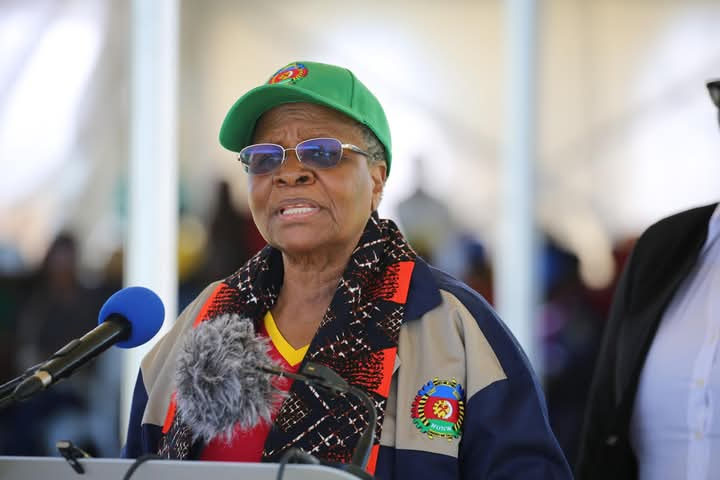LONDON – Opec’s newest member Angola is likely to stay free of the group’s output constraints so long as oil prices remain strong, giving the country scope for its plans to launch several oilfields in coming months.
Opec Secretary-General Abdullah al-Badri is scheduled to meet Angolan Oil Minister Desiderio Costa next week in Luanda to lay the groundwork for a possible output target. “I don’t think Angola will cut any barrels now or in the foreseeable future,” said Leo Drollas, deputy executive director for the Centre for Global Energy Studies.Angola, which joined the Organisation of the Petroleum Exporting Countries in January, has been exempt from the group’s pledge last year to lower production by 1,7 million barrels per day (bpd).Iraq is the only other member not bound to the agreement.OIL PRICES With oil prices now trading at US$70 (N$511) a barrel and Opec facing mounting calls from consumers to increase output, Angola can remain confident that it can continue to pump at full throttle without any pressure from other members.”(Opec and Angola) will agree to do something if and when the oil price looks like it’s cracking.The Angola minister will say to Opec, ‘I’ll get back to you when the oil price is US$60,’” said Adam Sieminski, chief energy economist at Deutsche Bank.Analysts doubt that Angola will agree to any production quota that limits output from several new fields expected by the end of the year and in 2008.”Angola would have had no need to join Opec in the first place if they thought Opec was going to crimp their production,” said Graham Stock, executive director of emerging markets research at JP Morgan.Angola’s decision to enter the exclusive oil club was seen by analysts as a sign of the government’s desire to exert greater political, as well as economic, influence on the international stage.”Why Angola itself should join is beyond logic.They have everything to gain by being outside (of Opec) with these new fields coming onstream,” Drollas said.”It’s purely a political decision.”The country’s newest oilfield Plutonio, operated by BP, is expected to begin production in the coming weeks and push total output near two million bpd by the end of the year.The second-largest oil producer in sub-Saharan Africa, after Nigeria, is currently pumping around 1,8 million bpd, according to October loading programmes.EXPECTATIONS ExxonMobil’s Kizomba C and Sonangol’s Gimboa fields are expected to come online next year, adding 310 000 bpd to Angola’s output.”I think they will set a quota for Angola next year that is close to three million barrels per day,” Stock said.”On current reserves and production predictions, they are not expected to hit that level so it could be a pretty accommodative quota.”Under the most optimistic estimates, Angola could reach three million bpd by the end of 2010.Nampa-Reutersecon 6″I don’t think Angola will cut any barrels now or in the foreseeable future,” said Leo Drollas, deputy executive director for the Centre for Global Energy Studies.Angola, which joined the Organisation of the Petroleum Exporting Countries in January, has been exempt from the group’s pledge last year to lower production by 1,7 million barrels per day (bpd).Iraq is the only other member not bound to the agreement.OIL PRICES With oil prices now trading at US$70 (N$511) a barrel and Opec facing mounting calls from consumers to increase output, Angola can remain confident that it can continue to pump at full throttle without any pressure from other members.”(Opec and Angola) will agree to do something if and when the oil price looks like it’s cracking.The Angola minister will say to Opec, ‘I’ll get back to you when the oil price is US$60,’” said Adam Sieminski, chief energy economist at Deutsche Bank.Analysts doubt that Angola will agree to any production quota that limits output from several new fields expected by the end of the year and in 2008.”Angola would have had no need to join Opec in the first place if they thought Opec was going to crimp their production,” said Graham Stock, executive director of emerging markets research at JP Morgan.Angola’s decision to enter the exclusive oil club was seen by analysts as a sign of the government’s desire to exert greater political, as well as economic, influence on the international stage.”Why Angola itself should join is beyond logic.They have everything to gain by being outside (of Opec) with these new fields coming onstream,” Drollas said.”It’s purely a political decision.”The country’s newest oilfield Plutonio, operated by BP, is expected to begin production in the coming weeks and push total output near two million bpd by the end of the year.The second-largest oil producer in sub-Saharan Africa, after Nigeria, is currently pumping around 1,8 million bpd, according to October loading programmes.EXPECTATIONS ExxonMobil’s Kizomba C and Sonangol’s Gimboa fields are expected to come online next year, adding 310 000 bpd to Angola’s output.”I think they will set a quota for Angola next year that is close to three million barrels per day,” Stock said.”On current reserves and production predictions, they are not expected to hit that level so it could be a pretty accommodative quota.”Under the most optimistic estimates, Angola could reach three million bpd by the end of 2010.Nampa-Reutersecon 6
Stay informed with The Namibian – your source for credible journalism. Get in-depth reporting and opinions for
only N$85 a month. Invest in journalism, invest in democracy –
Subscribe Now!










